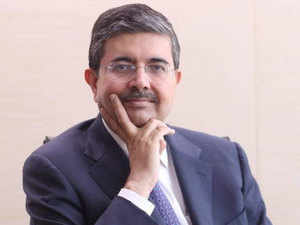
Kotak said the scheme is set to witness increased momentum in the next 2-4 weeks from private banks. “Private sector banks started a few days later. It is about getting the house in better shape, and you will see the private banks catch up with PSBs,” he remarked.
Kotak, however, added that to widen Indian MSMEs’ access to capital in today’s challenging times, risk capital, especially venture and angel investment is the need of the hour.
“Many Indian MSMEs have great ideas and great entrepreneurship, but very often they need risk capital to grow, and therefore availability of risk capital, especially venture and angel investment is needed to strengthen the equity base for MSME”, believes Kotak.
Speaking at CII Virtual Dialogue on, ‘Strategising the Rollout of Economic Stimulus Package’ on the occasion of International MSME Day, the industry representative emphasised on the importance of risk capital for liquidity starved Indian MSMEs amid the ongoing Covid crisis.
“Today, any scheme aimed at providing more risk equity capital for the MSME sector, either by the government or backed by private initiatives to enable them to withstand the shocks in the external environment is very crucial. Indian savings are not going enough towards risk capital and we need to channelise risk capital available for businesses and industries with a particular focus on the MSMEs sector,” he added.
In Kotak's view, the equity base of many MSMEs turns out to be a tad weak and as bankers, this is one issue witnessed by lenders from time to time. Therefore, getting an equity base by getting an external investor, if required, is a great idea to benefit Indian MSMEs, he felt.
For ensuring sustainable development of Indian MSMEs, Kotak also highlighted the importance of adhering to good business governance practices. “In a nutshell, the availability of risk capital and proper governance is the bedrock of making a better future for MSMEs,” he asserted, adding, how MSMEs ensure that they don’t get overburdened with the cost of governance and compliance will be very crucial.
Further, urging Indian MSMEs to draw lessons from their counterparts elsewhere, Kotak said, “Germany is one country whose large part of the growth has come on the back of its MSMEs that have made it a manufacturing hub for the world. Today, it’s one of the most advanced, export-oriented economy of the world. India needs to have some of those ideas to be leveraged here to boost the MSME sector in transforming India’s future.”
During the session, the largest public lender SBI's Chairman Rajnish Kumar highlighted that the MSME sector is mostly dependent on lending from the informal sector and the new definition of MSMEs, which includes both turnover and investment limits, will Improve credit flow to the sector.
"We are dealing with an unprecedented situation in which MSMEs are more vulnerable than other segments,” Kumar said, adding the recent measures announced by the government, including the ECLGS scheme, are aimed at easing working capital pressure on the country’s MSMEs. These measures, will not entirely eliminate the pain, but help reduce the pain for the MSME sector, he added.
When it comes to the cost of finance, with better technology and more robust digital financial supply chain the knowledge gap is reducing and firms are moving towards formal sector lending, the SBI chief said.
SBI has till date sanctioned 4 lakh loans worth Rs 19,000 crore under the ECLGS as on date, he further revealed. Citing the example of the government’s flagship schemes to boost credit flow to the sector, including PSB59Minute scheme, Kumar said the scheme took off really well and using businesses’ GST data, income tax data and the credit history of a unit, coupled with the platform’s analytics, sanctioning is almost automatic.
“Before we moved to technology, it was very difficult to verify financial statements. Now with so much data available, through the Ministry of Corporate Affairs (MCA), Registrar of Companies (ROC) platforms, etc., you have verifiable data which can be cross-checked, he underlined.
On the occasion, Devendra Kumar Singh, Additional Secretary & Development Commissioner (Ministry of MSME), spoke about the need to probe why the MSME sector is unable to connect to formal sector lending and what should be done to bridge the gap.
“The 7th Economic Census data shows that 77% of MSMEs are on self-financing mode. Financial Institutions contribute to only 0.78% of total lending, 1.15% from cooperative societies, less than 1% from microfinancing institutions,” he pointed out.











 Get Unlimited Access to The Economic Times
Get Unlimited Access to The Economic Times
